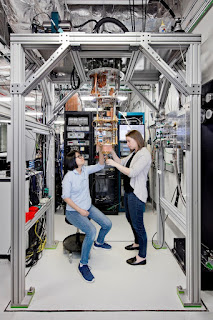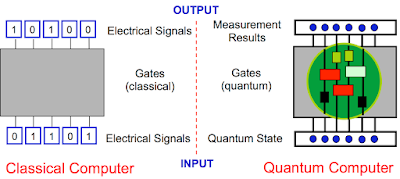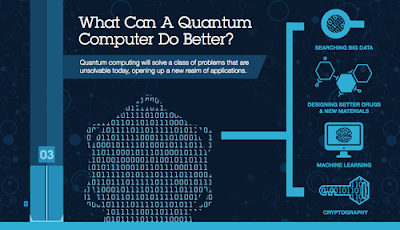Twitter Feed
Ambient Awareness. The cloud killer app?
Ambient Awareness: the ability to acquire, process, and act upon application specific contextual information, taking the current user preferences and state of mind into account. In the September 5th New…
The Cloud Wins in Minneapolis at the RNC!
Little did I know that while I was watching the Republicans cheer their standard bearer inside the Xcel Energy Center that the cloud infrastructure was outside defeating the forces of…
Cloud Computing vs. Virtualization
Yesterday, Reuven Cohen in ElasticVapor, provided an excellent post on the title subject. I’d like to “second his emotion” and, for my audience, add that cloud computing technologies and techniques…
Government Technology Cloud Recommendations
Recommendation on the cloud from Government Technology: No. 1: Educate your team about cloud computing. Don’t just ignore this topic as hype – the future is in this direction. Go…
Cloud Computing: A pay-by-consumption scalable service
John Edwards (not the Senator) of Computerworld sees cloud computing as a “…pay-by-consumption scalable service that’s usually free of long-term contracts and is typically application- and operating system-independent”. His recent…
Cloud Computing Dictionary
Geva Perry will be presenting at the October 8th SOA-R event. Before attending, you may want to visit his cloud computing dictionary to catch up on the current cloud computing…
Google Launches Chrome: Desktop-centric to Network-centric
According to Nicholas Carr, “Chrome is the first cloud browser”. If you’re not familiar with Chrome, this application is Google’s entry into the browser wars. In his blog, Mr. Carr…
Boeing Gives Up On Interoperable Modelling and SimulationNnetworks
Last week a Flightglobal article reported on the softening of Boeing’s stance on the need to establish standards for networking protocols across the US and global defence industry. Citing the…
Cisco: A Cloud Computing Company?
Yes Cisco ! Red Herring’s report on Cisco’s acquisition of PostPath last week presents a strong case for this. If finalized, PostPath would become Cisco’s fifteenth acquisition in less than…
Cloud Computing at top of Hype Cycle
Computerworld reports that Gartner see cloud computing as being at the top of the hype cycle. They have also settled on a definition: “a style of computing where massively scalable…
- The release of a new API (Application Program Interface) for the IBM Quantum Experience that enables developers and programmers to begin building interfaces between its existing five quantum bit (qubit) cloud-based quantum computer and classical computers, without needing a deep background in quantum physics.
- The release of an upgraded simulator on the IBM Quantum Experience that can model circuits with up to 20 qubits. In the first half of 2017, IBM plans to release a full SDK (Software Development Kit) on the IBM Quantum Experience for users to build simple quantum applications and software programs.
The IBM Quantum Experience enables anyone to connect to IBM’s quantum processor via the IBM Cloud, to run algorithms and experiments, work with the individual quantum bits, and explore tutorials and simulations around what might be possible with quantum computing. Since its launch less than a year ago, about 40,000 users have run over 275,000 experiments on the IBM Quantum Experience. It has become an enablement tool for scientists in over 100 countries and, to date, 15 third-party research papers have been posted to arXiv with five published in leading journals based on experiments run on the Quantum Experience.
 The broad availability of quantum computing capability could prove to be a significant blow to current data encryption practices. In 2015 the US National Security Agency actually advised US agencies and businesses to prepare for a time when the cryptography protecting virtually all e-mail, medical and financial records, and online transactions would be rendered obsolete by quantum computing. The US National Institute for Standards and Technology (NIST) is also running a competition to spur work on post-quantum algorithms.
The broad availability of quantum computing capability could prove to be a significant blow to current data encryption practices. In 2015 the US National Security Agency actually advised US agencies and businesses to prepare for a time when the cryptography protecting virtually all e-mail, medical and financial records, and online transactions would be rendered obsolete by quantum computing. The US National Institute for Standards and Technology (NIST) is also running a competition to spur work on post-quantum algorithms. - Drug and Materials Discovery: Untangling the complexity of molecular and chemical interactions leading to the discovery of new medicines and materials;
- Supply Chain & Logistics: Finding the optimal path across global systems of systems for ultra-efficient logistics and supply chains, such as optimizing fleet operations for deliveries during the holiday season;
- Financial Services: Finding new ways to model financial data and isolating key global risk factors to make better investments;
- Artificial Intelligence: Making facets of artificial intelligence such as machine learning much more powerful when data sets can be too big such as searching images or video; or
- Cloud Security: Making cloud computing more secure by using the laws of quantum physics to enhance private data safety.
This content is being syndicated through multiple channels. The opinions expressed are solely those of the author and do not represent the views of GovCloud Network, GovCloud Network Partners or any other corporation or organization.
( Thank you. If you enjoyed this article, get free updates by email or RSS – © Copyright Kevin L. Jackson 2017)
Cloud Computing
- CPUcoin Expands CPU/GPU Power Sharing with Cudo Ventures Enterprise Network Partnership
- CPUcoin Expands CPU/GPU Power Sharing with Cudo Ventures Enterprise Network Partnership
- Route1 Announces Q2 2019 Financial Results
- CPUcoin Expands CPU/GPU Power Sharing with Cudo Ventures Enterprise Network Partnership
- ChannelAdvisor to Present at the D.A. Davidson 18th Annual Technology Conference
Cybersecurity
- Route1 Announces Q2 2019 Financial Results
- FIRST US BANCSHARES, INC. DECLARES CASH DIVIDEND
- Business Continuity Management Planning Solution Market is Expected to Grow ~ US$ 1.6 Bn by the end of 2029 - PMR
- Atos delivers Quantum-Learning-as-a-Service to Xofia to enable artificial intelligence solutions
- New Ares IoT Botnet discovered on Android OS based Set-Top Boxes




